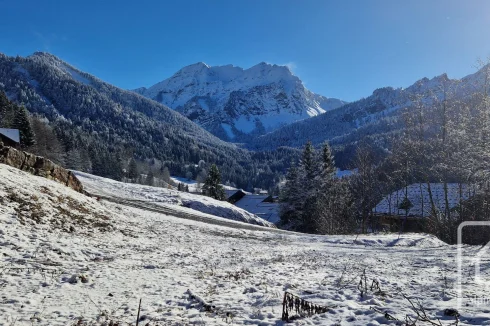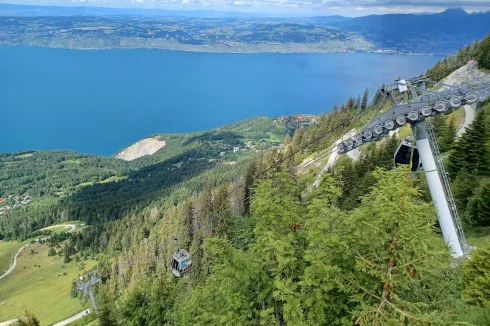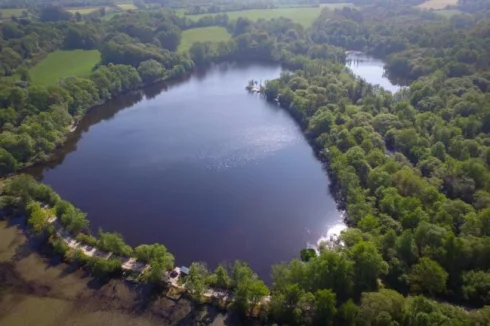New Scandal Over Holiday Residences
Wednesday 07 January 2015
A developer of holiday residences in the Ariege has gone into bankruptcy, in a case that again exposes the risks associated with this type of property investment.
Holiday residential developments, known as résidences de tourisme, have spawned in France over the last twenty five years, with around 400,000 bed-spaces having been created since the mid-1980s.
The majority of these developments are located in seaside locations, but many others are in skiing resorts, and to a lesser extent in the cities and the countryside.
The developments are really a hybrid between a hotel and a furnished apartment – effectively serviced apartments for holiday use.
A great deal of the attraction of these developments has been down to the tax incentives that have been available to investors, both on income tax and a refund of VAT. These incentives are known as ‘Périssol’, ‘Besson', 'Censi-Bouvard' and 'Demessine’, after the Ministers who introduced the schemes.
When these tax breaks are coupled with a 'guaranteed' rent and transfer of management responsibility to an operator, it has seemed an irresistible offer.
As a result, many investors have done very well out of these schemes, which have been one of the premium investment products in France.
The problem has been that the tax advantages seem to have rather clouded the judgement of some developers, investors and local councils, as in recent years a number of these developments have got into considerable financial difficulties.
There have been numerous cases where commercial operators have threatened to terminate the lease they hold on the complex unless investors agreed to a reduction in the guaranteed rents payable to them, or even to withholding rental payments.
Where they have actually gone into liquidation or failed to renew their lease the complex has been left with no operator, and investors have been left with no guests and a decaying holiday complex.
In a large number of cases, the complex has subsequently been purchased by a new operator, but they have often insisted on renegotiation of the rental guarantee as part of the terms of taking on the business.
Most of the failures have been the result of unsuccessful complexes based in rural development areas (including some low lying ski resorts), where the tax breaks for investors have been greatest, but where the commercial prospects for the development are more speculative.
The latest casualty is the developer 'Simbioisis', who was responsible for a number of ski complexes to be built in the Ariege (Midi-Pyrenees) and in Allier (Auvergne), both areas whose commercial potential is marginal.
In 2011 the company went into liquidation, leaving stranded hundreds of individual investors whose funds were to be used to build the new developments.
A criminal investigation opened shortly afterwards, to investigate claims of fraudulent behaviour by the developer and their associates.
According to evidence submitted to recent court hearings in Toulouse, few developments were ever completed, or even started, with one development site no more than derelict buildings once used to accommodate local workers, and which remains in that condition.
Those developments that did get off the ground never achieved the returns promised for them, and a number of major construction defects have been found in some of the developments.
Not only is the developer in the dock (although the main shareholder died of a heart attack in 2012), but so are an insurer and two architects. The former is accused of producing false rental guarantees to induce investor interest, whilst the architects similarly provided false certificates of building progress to secure the release of further funds from the initial investors.
It seems investors were still being signed up for developments, and funds being obtained from existing investors, despite the fact that building works had ceased or never commenced.
Just what has happened to the money paid by the investors to Simbiosis remains a mystery.
What is a Résidence de Tourisme?
The creation of a résidence de tourisme relies on somewhat unusual ménage à trois – a developer, a commercial operator and an investor.
A property developer constructs the accommodation, on which most of the properties are pre-sold to individual investors, who then enter into a commercial lease with a specialist operator to run it.
The operator offers a guaranteed fixed rent to each investor of normally around 4% per annum.The operator is then expected to make their own return from sub-letting the rooms and facilities to guests.
Investors are also normally allowed use of a flat/villa in the complex (not necessarily their own) for a specific period each year.
Generally, an association of investors (copropriétaires) will be established who are then able to liaise with the operator and pick up any issues that may be of concern.
The résidences de tourisme need to be distinguished from 'villages de vacances', as the former focus on serviced accommodation, while the latter is a complete holiday complex.
Next Article: Smoke Alarms Obligatory
Thank you for showing an interest in our News section.
Our News section is no longer being published although our catalogue of articles remains in place.
If you found our News useful, please have a look at France Insider, our subscription based News service with in-depth analysis, or our authoritative Guides to France.
If you require advice and assistance with the purchase of French property and moving to France, then take a look at the France Insider Property Clinic.





